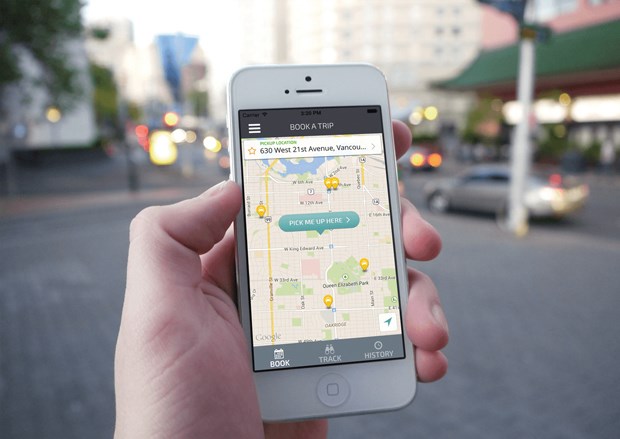With ongoing discussions of when B.C. will open its doors to ride-sharing, Richmond Centre for Disability is calling for equal access to services.
According to an Abacus Data poll, 64 per cent of Greater Vancouver residents strongly support or support Uber and Lyft services coming to B.C. However, Ella Huang, RCD’s executive director, said the needs of all residents should be considered with such a service.
“From our perspective, we welcome services to citizens in Richmond but we are very concerned that these services must be equally accessible to everyone, people with disabilities included,” Huang told Richmond News. “Right now you can call the taxi companies and they send an accessible vehicle so that is the main thing.”
Currently, taxi company employees receive training on how to assist passengers with disabilities, how to tie down wheelchairs and how to ensure all the mechanics of the vehicle are up to date and working properly. Huang said she wants to know if drivers of ride-hailing services will be similarly trained.
“If they fulfill all of this, we are happy to have additional public services for our citizens,” Huang said.
B.C’s all-party committee tasked with discussing ride-hailing services also highlighted accessibility as one of its five key areas of concern when it released its list of recommendations last month. Some of its recommendations to promote accessibility amongst ridesharing companies included implementing a levy for companies that do not offer accessible trips, which could be used to enhance other accessible services companies.
The provincial report also suggested that transportation companies should be required to meet or exceed established mobile accessibilities standards. Another recommendation stated ride-hailing companies should provide an “accessible trip bonus” to drivers of accessible vehicles as a way of acknowledging the extra time required to provide accessible services, and to mitigate the costs associated with operating an accessible vehicle.
“I think they need to make (accessibility) as one of their priorities,” Huang said.
On Uber’s accessibility page, the company highlighted its cashless payments, on-demand transportation, GPS and locating-sharing features as how it’s “helping increase the mobility and independence of transportations for riders with disabilities.” The page did not mention wheelchair accessible vehicles or training, however.
For Lyft, the company said its app “allows passengers with accessibility needs to enable Access Mode.”
In some areas, vehicles that are specially outfitted to accommodate wheelchairs will be sent in place of a regular Lyft vehicle. In areas where those vehicles are not available, the company says “information regarding local services will be sent directly to the passenger via text message when the ride is requested” instead.
Currently, the province has not offered a target date for implementing ride-hailing services, but it has said it will provide a more concrete plan and timeline later this fall.



